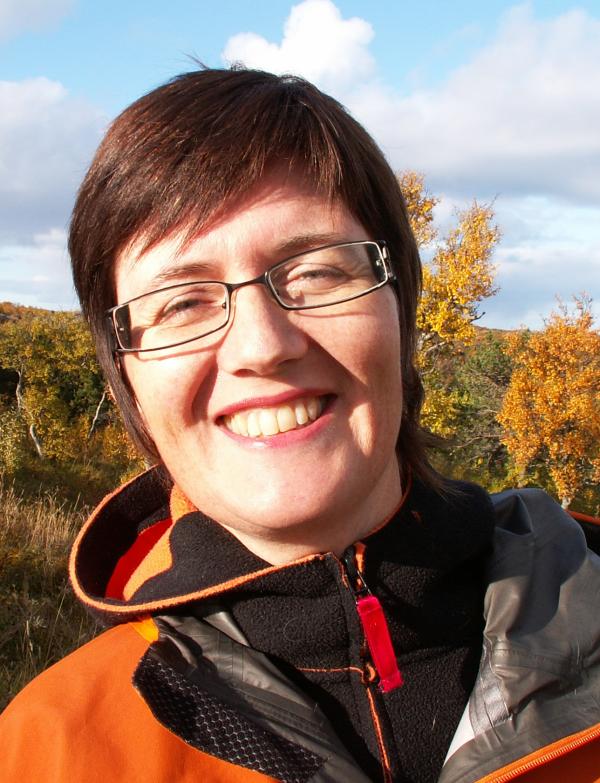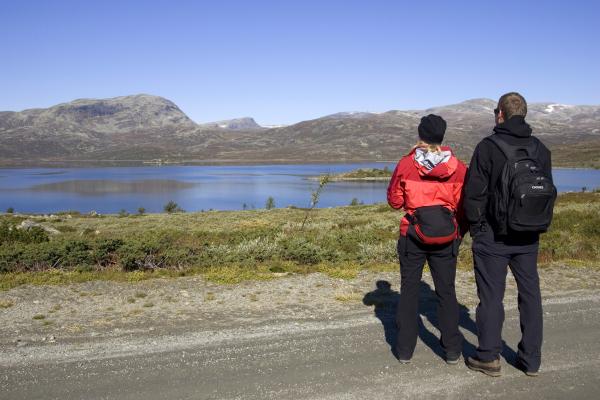“Your biological clock is ticking.” “You don’t know what you’re doing; you’ll change your mind eventually.” These are typical statements facing women who say that they do not want children.
Today, there are few taboos left regarding women who are unable to have children, and one is expected to try other methods if children are not conceived naturally. Being single or lesbian no longer means you have to live without children.

"A few years ago, when I did a study on women, who because of infertility became mothers through adoption or IVF, they frequently said that they could not imagine a life without children. I found this attitude somewhat odd, even though I do have children of my own," says cultural scientist Tove Ingebjørg Fjell. Her experiences inspired her to make a study of childfree women; that is, women who choose not to have children.
The 1960’s: strong reactions rare
Fjell has interviewed 10 Norwegian childfree women from two generations. The older generation consisted of women who were young adults during the 1960’s and 70’s and who were in stable, heterosexual relationships during their fertile period. Another common trait among them was that they themselves, and not their spouse, had suggested that they be childfree.
"Of course it is limited how much one can generalise, based on such a small number of persons, but none from the older generation report strong reactions to their choice. Some had experienced vexatious comments from colleagues, but not all. These women saw this as a sign of politeness. Having children or not was associated with sexuality and was consequently regarded as something private, says the researcher. On the whole, nobody asked them why they did not have children, since people assumed they were unable to, and infertility was not discussed to the extent it is discussed today."
Harder today
Fjell says that women in other professions or networks might have provided different answers. Still, the answers are interesting, because they differ from the younger group of women she interviewed, who were around 40 when she talked to them.
"The younger women report, just like the older women, that family and friends are considerate. However, acquaintances can be far more direct and brutally frank," Fjell says.
"By saying that the women will change their minds once they have reflected upon it and once they have become more mature, their life choice is infantilised," Fjell continues. This is what bothered the women in her study the most.
The childfree women Fjell talked to feel that they have made a conscious choice. They claim that many women have children without having thought through the decision carefully enough. They also point out that while many take the liberty to tell them that they probably will regret their choice, it is absolutely taboo to talk about the possibility that some women can regret having had children.
Not “child-haters”
Only one of the women Fjell talked to said that she did not like children. Several of the others took care to emphasise that they do like children, and that they often spend time with the children of their relatives or friends.
To dislike children is a great taboo, and even those who do so will hesitate to admit it openly. At the same time, it is not uncommon for others to suspect that childfree women dislike children, and consequently, it may feel paramount for the childfree women to point out that this is not the case.
"I expected them to undercommunicate the wish for a child. But the majority said that wanting a child is something inherent, that it comes naturally, but that it is possible to negotiate with nature. By saying this, they signal that they are in line with the rest of the world; they minimise the difference between themselves and others. But at the same time, they maximise the difference, by saying that they have made a choice which is not in line with what they see as the norm," Fjell says.
As for the connection between motherhood and femininity, the younger women especially hold that motherhood need not be a part of femininity - one is not less of a woman because one does not have children. Femininity may be composed of other elements.
Freedom
But why do they make this unusual life choice?
"I think there are just as many explanations as there are childfree women, but certain factors appear more frequently. One reason could be that one does not wish to share one’s spouse with anyone else, or one wishes to be free to travel, or have a career. Or it could simply be to have the freedom to be ill, without having to take care of a two-year old! Some are scared of the delivery itself, and some have had a painful childhood and youth, and fear a repetition of it. Some dislike children. Or they may hold that the world is not a fit place in which to have children," the researcher says.

The question of freedom was a key factor in both age groups, but how this freedom was to be exploited, varied. For the younger women, a focus on career was the most important factor. Several among them held that the Norwegian welfare state still fails to facilitate the system adequately for parents with small children. For instance, they see that women who exercise the right to a long maternity leave will lose when it comes to career, or that there is a lack of kindergartens in the vicinity of the workplace.
Childfree women in other countries
Relatively few Norwegian women choose not to have children. In countries where it is difficult to combine children and career due to poor social facilities, far more women choose not to have children, which in turn affects the birth rate. In Germany it has been suggested that heterosexual couples who choose not to have children should be taxed more heavily, since they do not contribute to the community by making new taxpayers who can take care of the elderly.
In the US there are many childfree women, and here, contrary to in Norway, one has built a “childfree identity”, present in public life and the media. In the US it is to a much larger extent “allowed” to express a dislike of children, and childfree persons can point out that they are the ones who have to work overtime when the soccer moms have to leave early, like we could see in an episode of Desperate Housewives. The childfree have their own web forums in which to vent their frustration over child talk during lunch, screaming children in restaurants and special arrangements for parents in the workplace.
Translated by: Ragnhild Ruud
The project "Incomplete women and men? Studies on childfree (voluntarily childless) couples" was financed by the Research Council of Norway under the Gender Research Programme 2005 - 2007.
One of the publications is the book Å si nei til meningen med livet? En kulturvitenskapelig analyse av barnfrihet. (Saying No to the meaning of life? A cultural study of childfreedom), by Tove Ingebjørg Fjell, Tapir Akademisk Forlag, 2008. (In Norwegian)
Tove Ingebjørg Fjell is a professor at the Department of Archaeology, History, Cultural Studies and Religion, University of Bergen.
